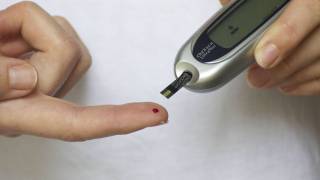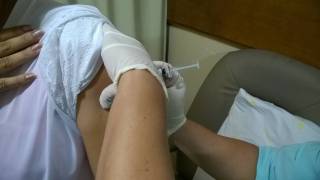Diabetes Or Prostate Cancer - Which Came First?

Diabetes medications have been proposed to play a role in the chemoprevention and treatment of prostate cancer, says a recent editorial published in JAMA.
As an example, retrospective studies have demonstrated improved survival outcomes for patients with advanced prostate cancer receiving metformin along with androgen deprivation therapies, said these researchers on November 6, 2019.
But, this relationship remains poorly understood.
This editorial questions the role of diabetes medications in the chemoprevention of prostate cancer. Excerpts from this editorial are inserted below:
‘It remains a clinical challenge to disentangle the role of diabetes medications from the presence of diabetes and other potential confounders like obesity and metabolic syndrome.
Prospective clinical trials are currently enrolling patients to test whether metformin is associated with improved outcomes when combined with approved systemic treatments for patients with metastatic prostate cancer.
While most retrospective studies have reported a lower incidence of prostate cancer in men with diabetes, others find that diabetes is associated with the diagnosis of more aggressive forms of prostate cancer.
These seemingly contradictory findings could be explained by detection bias if diabetes medications lower prostate-specific antigen (PSA) levels and result in a delay in diagnosis. Alternatively, diabetes medications may modify the risk of developing prostate cancer.
In a related study, Beckmann et al examine the association of diabetes medications with 4 different stages in the screening and diagnosis of prostate cancer using a large database with linked pharmacy, laboratory, and pathology records.
First, they demonstrate that patients with diabetes have lower PSA values prior to exposure to diabetes medications.
Next, by comparing PSA values before and after initiating diabetes medications, they demonstrate that diabetes medications are not associated with lower PSA values.
After adjusting for baseline PSA levels and the length of exposure to diabetes medications, men receiving diabetes medications were less likely to undergo prostate biopsy.
Finally, men receiving diabetes medications were not more likely to be diagnosed with prostate cancer when a prostate biopsy was performed.
An important strength of this report is the availability of baseline PSA values prior to exposure to diabetes medications and the inclusion of length of exposure to diabetes medications in the analysis.
The presence of lower PSA values before exposure to diabetes medications suggests that PSA values are associated with the presence of diabetes or other comorbidities like obesity and metabolic syndrome that are commonly found in men with diabetes.
Moreover, this study did not find that diabetes medications were associated with a reduced risk of being diagnosed with prostate cancer.
Taken together, these data suggest that diabetes medications are not associated with the modification of PSA values or the likelihood of being diagnosed with prostate cancer.
Clinicians can continue to use similar PSA thresholds when considering prostate biopsy in men with or without exposure to diabetes medications.
The prior reports suggesting a lower risk of prostate cancer in men receiving diabetes medications can be partially explained by detection bias rather than a protective effect of diabetes medications.
While the volume and grade of prostate cancer were not included in this report, future studies will help determine whether diabetes medications may be associated with the diagnosis of clinically significant (high-grade or high-volume) prostate cancer,’ concluded this editorial.
The study was supported by the Swedish Cancer Society, the Swedish Research Council, and the Swedish Research Council for Working Life. The study authors reported having no relevant financial relationships.
The editorial writers Velaer and Leppert also reported no conflicts of interest.
Prostate Cancer news published by Vax-Before-Cancer
Our Trust Standards: Medical Advisory Committee










